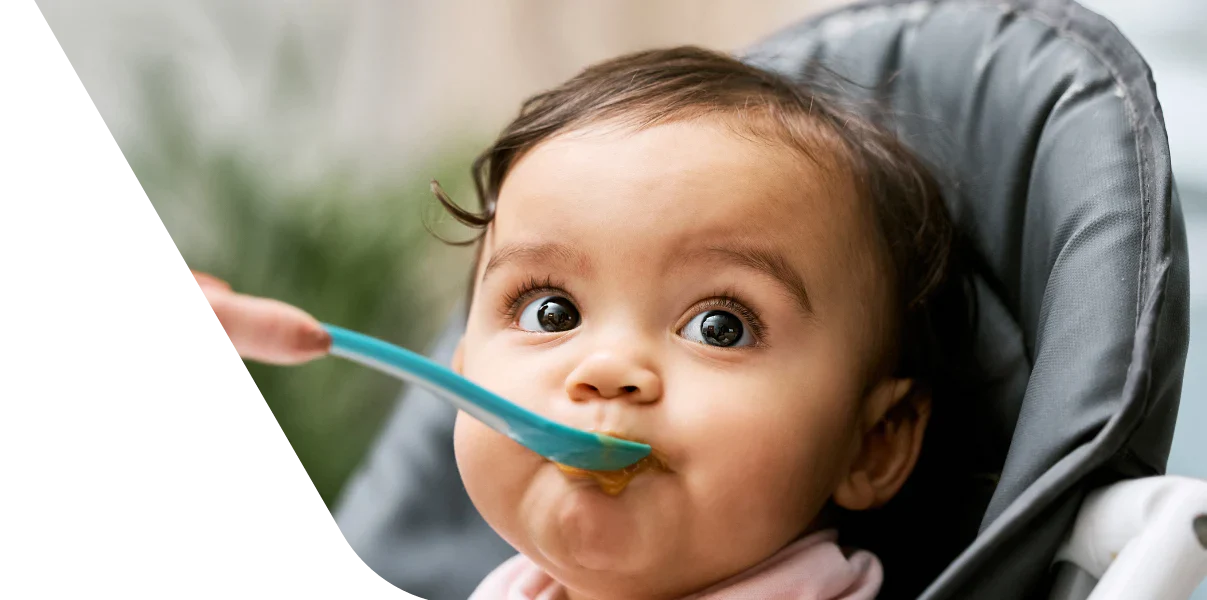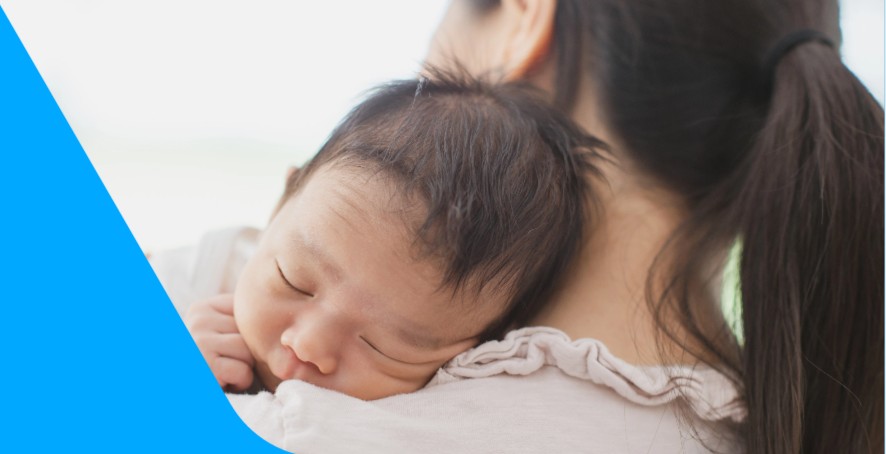SKIP TO CHAPTER

When to Start Solids: Signs Your Baby is Ready
Breast milk or formula will continue to be your baby's primary source of nutrition for the first year; however, by six months, your baby's digestive system and chewing abilities should be ready for some solid foods. Signs your baby is ready for solids include a demonstrated interest in solid food, the ability to sit up in a highchair, and the ability to let you know when they want food (e.g. Opening their mouth) and when they don’t want food (e.g. Turning their head away).
The Canadian Paediatric Society, Health Canada and the Dietitians of Canada recommend starting solids when your baby is around six months old. But breast milk or infant formula is still an intrinsic part of your baby's diet that supports their increasing nutritional needs. It is recommended that you continue to breastfeed or formula feed in order to provide the nutrition required to nourish their development.
Though you can continue to breastfeed until your baby is two years and beyond, at six months you should start to introduce your baby to other foods. Think of solids not only as nutrition, but an opportunity for your little one to experience new textures and flavours while practicing the oral motor skills necessary for spoon feeding.
Knowing when to start solids will depend slightly on your child's development. Each child is different, so don't be too concerned if you don't see signs of readiness at exactly six months. Just check in with your paediatrician and follow their advice.
Signs your baby is ready for solids
They can:
-
Hold their head up.
-
Sit in a highchair, alone or with support.
-
Follow food with their eyes.
-
Open their mouth wide when she sees food coming.
-
Hold food in their mouth.
-
Close their lips over the spoon.
If you start your baby on solid foods too late, they might:
-
Not get all the nutrients they need.
-
Have difficulty learning to accept and try new foods and textures.
-
May have an increased risk of food allergies. Studies have shown that early introduction of allergenic foods such as peanuts can reduce the risk of food allergies.
Common Myths
You may have heard that babies will start sleeping through the night after they start eating solid foods, but don't get your hopes up. Starting solid foods early does not actually help your baby sleep through the night.
Your baby does not need teeth to start eating solids. Since you'll be starting with mushy, almost liquid-y foods your baby won't need teeth to enjoy them. “Solids,” especially in the beginning, simply means nourishment that cannot be taken in a bottle.
Keep an eye out for these signs that your baby is ready to start eating solids and get ready by stocking up on the baby foods of your choice. If still don't feel certain about when to start solids, consult your child's doctor.








